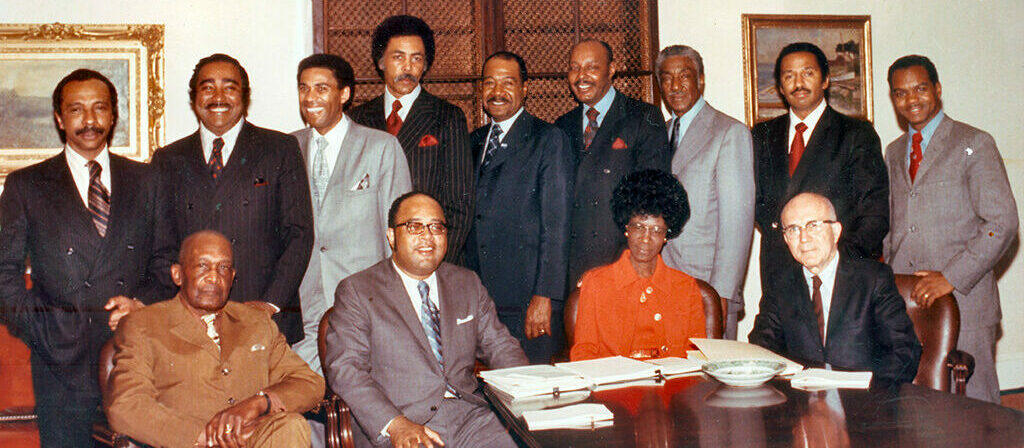The Congressional Black Caucus (CBC) was established in 1971, although its roots go back to the Democratic Select Committee (DSC). The DSC was started in 1969 by Representative Charles Diggs of Michigan, who was looking for a way the nine black members of the House of Representatives could meet and talk about their common political concerns. The DSC addressed a number of issues of concern to African Americans, including investigating the killings of certain members of the Black Panther Party and boycotting President Richard Nixon’s 1970 State of the Union Address. This boycott pressured Nixon into meeting with the DSC and discussing topics such as civil rights, Vietnam, anti-drug legislation, and welfare reform.
In 1971 the group was formally organized as the CBC and Diggs was nominated as its first chairman. In 1972 the group set out to make sure that all Democrats became more attentive to black concerns. At the 1972 Democratic National Convention the CBC drafted the Black Declaration of Independence and the Black Bill of Rights. The Black Declaration of Independence demanded that the Democratic Party and its nominee commit themselves to full racial equality. The Black Bill of Rights on the other hand made more specific demands, which failed to gain the support of the Party or its nominee, George McGovern.
Since its inception the CBC has grown and includes a diverse group of members. Of course some of this diversity has led to internal conflict. Although there is often disagreement between members on certain issues, like the North American Free Trade Agreement (NAFTA) among others, the diversity has led to the CBC’s connections to a larger network of congressional committees.
Despite these internal conflicts and some external criticism, the CBC to this day remains a strong proponent for issues of concern to the African American Community. Some of the most important issues they address include education, the justice system, social programs such as welfare, and foreign policy issues (especially regarding third-world nations where people of African descent are the majority). Some of the major victories that the CBC was involved in include the 1977 Full Employment Act, the 1982 Martin Luther King Holiday legislation, and the 1986 sanctions against South Africa. The CBC also helped to change President Bill Clinton’s policy towards Haiti. These policy changes included extending more aid to Haitian refugees and placing stronger sanctions on Haiti’s military government. In 2004 the CBC spearheaded a petition to end the genocide in the Darfur region of the Sudan.

